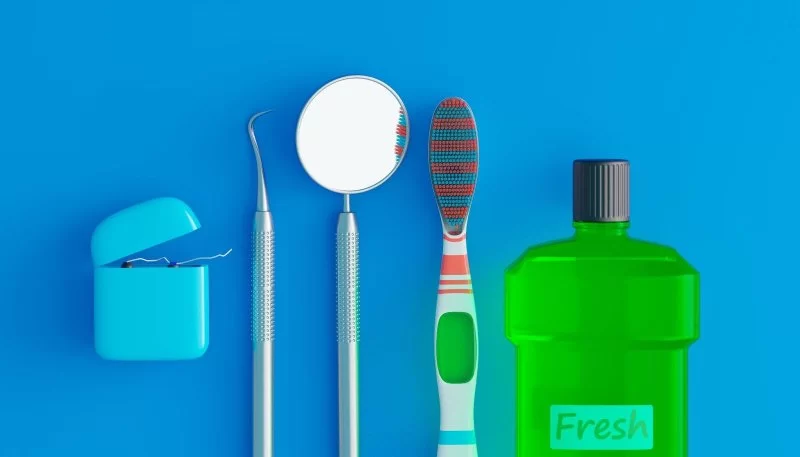
1. Understanding the Oral Hygiene Product Market in the U.S.
The oral hygiene industry in the United States is vast, driven by growing awareness of dental health and the increasing demand for innovative products such as fluoride-free toothpaste, charcoal powders, and eco-friendly toothbrushes. The market includes not only massive global brands but also a wide array of contract manufacturers and private label suppliers catering to startups and boutique dental care businesses.
In 2023 alone, oral hygiene products accounted for over $10 billion in U.S. retail sales, with the biggest surges seen in natural ingredient-based formulas and sustainable packaging. As consumer preferences evolve, so does the landscape of manufacturers, creating a diverse supplier network worth exploring.
2. Where to Start: Key Platforms to Locate Manufacturers
2.1 Industry Trade Shows and Expos
One of the most effective ways to meet oral hygiene manufacturers is by attending trade shows like the ADA Annual Meeting (American Dental Association), or Natural Products Expo West. These events bring together manufacturers, suppliers, and distributors, offering direct face-to-face interaction and real-time product demonstrations.
A startup founder, Lisa Tran, discovered her contract toothpaste manufacturer during the 2022 Natural Products Expo. She shared, “I wanted someone who understood clean beauty standards. At the expo, I met a family-run lab in Colorado that did exactly that.” These real-world connections are often more valuable than digital searches alone.
2.2 Online B2B Marketplaces
Digital platforms like ThomasNet, Kompass, and Alibaba’s U.S. segment provide searchable directories of manufacturers filtered by location, certification, and product type. Many companies list minimum order quantities, packaging options, and ingredient flexibility on their profiles.
However, it's crucial to request samples and verify certifications (such as GMP or ISO) to avoid misleading listings. A detailed manufacturer comparison based on ingredient sourcing, lead time, and scalability is essential before signing any agreements.
2.3 U.S. Government and Industry Databases
The FDA’s Registered Drug Establishments database and the Small Business Administration’s supplier network can be goldmines for identifying FDA-compliant oral care product manufacturers. Many reputable suppliers are listed here with detailed profiles, including inspection history and product categories.
Additionally, membership-based organizations such as the Personal Care Products Council provide vetted lists of U.S.-based oral hygiene manufacturers who adhere to current safety and compliance protocols.
3. Private Label and White Label Opportunities
3.1 Advantages of Private Label Manufacturing
Many dental startups prefer private label solutions to launch fast and focus on branding. These manufacturers offer pre-formulated products—such as whitening strips, mouthwashes, and bamboo toothbrushes—ready for your label. It significantly reduces R&D costs and speeds up market entry.
Take the story of Drew Caldwell, a dental hygienist turned entrepreneur, who launched his brand of eco-friendly mouthwash tablets using a private label partner in New Jersey. “They handled formulation, regulatory paperwork, and even the design of our compostable pouches,” Drew said. “All I had to focus on was branding and marketing.”
3.2 Things to Ask Before Signing
Before committing, ensure your manufacturer offers customization flexibility, ingredient transparency, and scalability. Ask for lab certifications, inquire about lead times, and discuss exclusivity rights to your formula if you plan to scale significantly in the future.
4. Evaluating a Manufacturer’s Credibility
4.1 Verifying Certifications and Compliance
Manufacturers in the oral hygiene space should ideally be FDA-registered and follow cGMP (Current Good Manufacturing Practice) guidelines. Additional certifications such as cruelty-free, USDA organic, or vegan-friendly can also enhance your product’s appeal in niche markets.
Ask to see audit reports, COAs (Certificates of Analysis), and product liability insurance details before moving forward. A professional manufacturer will be transparent and proactive in sharing these documents.
4.2 Requesting Samples and Pilot Runs
A pilot run is a small batch production intended to test product quality and compatibility with your packaging and shipping systems. It’s recommended to evaluate texture, shelf stability, ingredient efficacy, and customer feedback before placing large orders.
Brands that skip pilot runs often face unpleasant surprises, from poor flavor to delayed shipments. Samples are more than just a taste test—they’re an essential QA checkpoint.
5. Building Relationships That Go Beyond Business
5.1 Working with Family-Owned Labs vs. Corporate Giants
While corporate-scale manufacturers offer volume and speed, many small businesses thrive working with family-owned labs. These partners tend to be more flexible, communicative, and open to unique formulations. The downside is longer lead times or higher unit costs—trade-offs that may be worth it for a niche, quality-driven brand.
One Midwest brand, MintLeaf Dental Co., sources its artisan charcoal toothpaste from a three-generation lab in Kentucky. Their founder, Elena Kim, says, “The personal relationship we built ensures my vision is honored in every batch. That trust is priceless.”
5.2 Looking Ahead: Innovation as a Partnership Goal
The best manufacturer relationships evolve into collaborations. Stay informed about upcoming ingredient trends like xylitol blends, remineralizing agents, or biodegradable packaging. Your manufacturer may already be working on next-generation oral care innovations—ask to be part of pilot testing programs or ingredient sourcing discussions.
If you’re unsure where to begin or want personalized recommendations, Dentistry Toothtruth provides tailored connections to certified oral hygiene product manufacturers that align with your brand’s mission, scale, and regulatory needs.







 Dental Solutions Market Street4.0 (576 review)
Dental Solutions Market Street4.0 (576 review) Mesa Valley Modern Dentistry4.0 (344 review)
Mesa Valley Modern Dentistry4.0 (344 review) Washington Square Dental4.0 (121 review)
Washington Square Dental4.0 (121 review) Gregg W Jepson DMD5.0 (7 review)
Gregg W Jepson DMD5.0 (7 review) Growing Smiles of Voorhees4.0 (2464 review)
Growing Smiles of Voorhees4.0 (2464 review) Metropolitan Endodontics4.0 (78 review)
Metropolitan Endodontics4.0 (78 review) The Importance of Oral Health Education During Pregnancy for a Healthy Pregnancy
The Importance of Oral Health Education During Pregnancy for a Healthy Pregnancy Best Tips for Brushing Your Teeth Properly for Healthy Gums: Essential Techniques for Oral Health
Best Tips for Brushing Your Teeth Properly for Healthy Gums: Essential Techniques for Oral Health Why Skipping Dental Checkups Can Lead to Bigger Oral Health Problems
Why Skipping Dental Checkups Can Lead to Bigger Oral Health Problems Advantages of Porcelain Dental Restorations
Advantages of Porcelain Dental Restorations How Can Diabetes Cause Tooth and Gum Problems? Preventing and Managing Oral Health Issues
How Can Diabetes Cause Tooth and Gum Problems? Preventing and Managing Oral Health Issues Healthy Habits for Promoting Good Oral Health and Hygiene: Tips for a Healthy Smile
Healthy Habits for Promoting Good Oral Health and Hygiene: Tips for a Healthy Smile